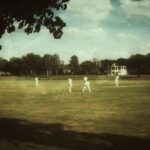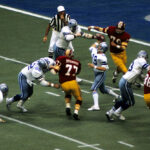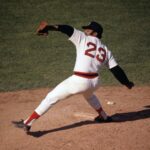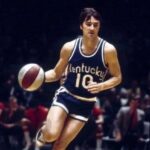Fernando Valenzuela: A Legendary Career that Transcended Baseball
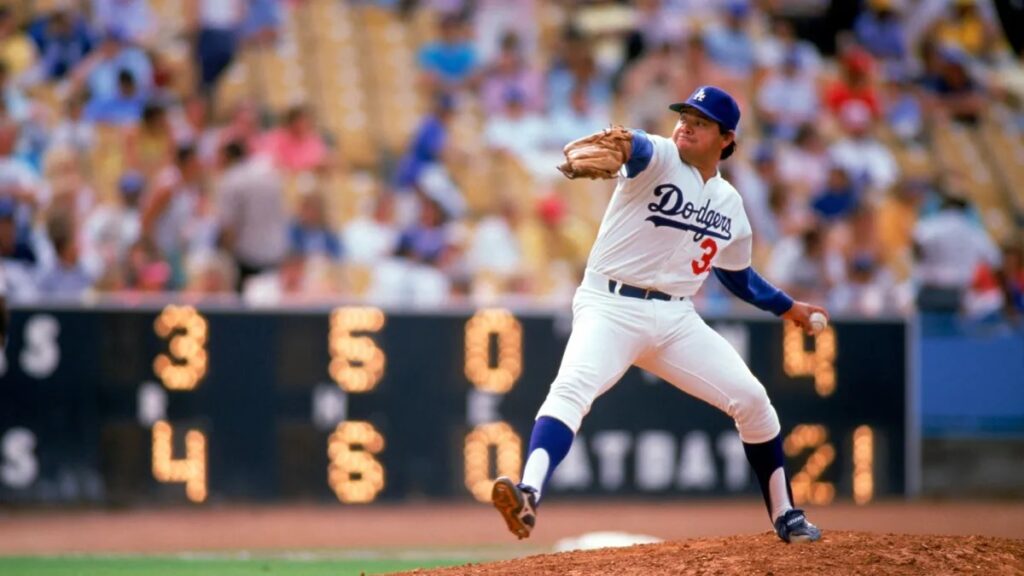
The world of baseball mourns the loss of Fernando Valenzuela, one of the sport’s most iconic figures, who passed away on October 22, 2024 at the age of 63. Valenzuela’s impact on baseball extended far beyond the pitcher’s mound, as he became a symbol of hope, pride, and cultural unity for millions. His unique pitching style, calm demeanor, and ability to deliver in big moments made him a fan favorite and a beloved figure in the Los Angeles community. Valenzuela’s career is one that epitomized greatness and resilience, as he rose from humble beginnings in Mexico to become one of Major League Baseball’s most unforgettable stars.
Early Life and Rise to Stardom
Fernando Valenzuela was born on November 1, 1960, in Etchohuaquila, a small village in the Mexican state of Sonora. Growing up in a family of farmers, Valenzuela’s love for baseball was evident from a young age. He played for local teams and developed a remarkable ability to throw a screwball, a pitch that would later become his signature weapon.
In 1979, at the age of 18, Valenzuela signed with the Los Angeles Dodgers and quickly made a name for himself in the minors. His dominance in the Mexican League and his performances with the Dodgers’ minor league affiliates caught the attention of team executives, and he was called up to the Major Leagues in late 1980.
Valenzuela’s arrival in Major League Baseball came at a critical time for the Dodgers, who were in need of a spark to propel them toward postseason success. Although he made only a handful of appearances late in the 1980 season, he was on the brink of something special.
The Birth of “Fernandomania”
Valenzuela’s official rookie season in 1981 would go down in baseball history as one of the most captivating and unprecedented stretches of performance by any player. In what came to be known as “Fernandomania,” Valenzuela captured the hearts of fans across the nation with his dazzling performances on the mound, his charismatic personality, and his unique pitching delivery, which involved looking toward the sky just before releasing the ball.
The 1981 season began with Valenzuela thrust into the starting rotation after an injury to Dodgers ace Jerry Reuss. In his very first start on Opening Day, Valenzuela threw a complete-game shutout against the Houston Astros. This was just the beginning of an incredible run: Valenzuela started his rookie season by winning his first eight starts, all complete games, with an astonishing five shutouts. His dominant pitching combined with his humble demeanor created a media frenzy, and fans flocked to stadiums to watch him pitch. “Fernandomania” spread like wildfire, not just in Los Angeles but throughout the country and especially in Latin America, where Valenzuela became a source of immense pride.
Valenzuela’s impact on the field was undeniable. He finished the strike shortened 1981 season with a 13-7 record, a 2.48 ERA, and 180 strikeouts, earning both the National League Rookie of the Year and Cy Young Award—an unprecedented feat. He was also instrumental in leading the Dodgers to the World Series title in 1981, where they defeated the New York Yankees in six games. Valenzuela’s performance in the postseason, including a critical complete-game victory in Game 3 of the World Series, further cemented his status as a star.
A Cultural Icon
Beyond his accomplishments on the mound, Valenzuela’s rise to stardom had a profound cultural impact. For Mexican-American fans and the Latino community, Valenzuela was a trailblazer. His success helped bridge the gap between Mexican and American cultures, and Dodger Stadium became a hub of Latino pride. It wasn’t uncommon for Mexican flags to wave in the stands whenever Valenzuela took the mound, and the Dodgers’ home games became events that transcended baseball.
Valenzuela’s presence in Major League Baseball was a source of inspiration for young Latino athletes who dreamed of following in his footsteps. He opened doors for greater representation of Latin American players in the league and is widely considered one of the most important figures in the sport’s global development. His popularity also led to increased attendance at games, as fans of all backgrounds were drawn to his magnetic personality and extraordinary talent.
The Post-Fernandomania Years
Although Valenzuela’s 1981 season was undoubtedly the peak of “Fernandomania,” his career extended well beyond that magical year. Throughout the 1980s, Valenzuela remained a mainstay in the Dodgers’ rotation and continued to perform at a high level.
He was selected to six straight All-Star Games from 1981-1986 and was known for his remarkable durability, pitching 96 complete games in his first seven seasons and routinely pitching over 250 innings per season. He finished in the top 5 in Cy Young voting three times between 1982-1986, including placing second in 1986 when he posted a 21-11 record with 3.14 ERA.
Though he did not have the typical physique of an elite athlete, Valenzuela was also one of the best hitting pitchers of his era. He won the Silver Slugger Award for pitchers in 1981 and 1983 and over the course of his career had 10 home runs, 84 RBI and a .200 batting average. He also won a Gold Glove for fielding excellence in 1986.
He suffered a shoulder injury during the 1988 season and missed the Dodgers improbable run to the World Series title. He did return to the rotation for the Dodgers in 1989 and posted a 23-26 record in 64 starts over the next two seasons.
Though he was not as consistently great in his final years with the Dodgers, he did have moments of greatness that reminded fans of the Fernandomania Years.
One of Valenzuela’s special moments came on June 29, 1990, when he pitched a no-hitter against the St. Louis Cardinals at Dodger Stadium. In doing so, he became the first Mexican-born pitcher to throw a no-hitter in Major League Baseball. The game was a testament to Valenzuela’s resilience and longevity, as he was able to deliver one of the finest performances of his career nearly a decade after the height of “Fernandomania.”
In addition to his no-hitter, Valenzuela’s career was defined by his exceptional control, mastery of the screwball, and his ability to deliver in clutch situations. He played for the Dodgers until 1990, and while his later years in Los Angeles were marked by injuries and inconsistency, his legacy as one of the franchise’s greatest players was already secure.
Valenzuela would go on to play for several other teams after leaving the Dodgers, including the California Angels, Baltimore Orioles, Philadelphia Phillies, San Diego Padres, and St. Louis Cardinals. Though his best years were behind him, Valenzuela continued to be a beloved figure in the sport, and his influence on younger generations of pitchers remained strong.
The Legacy of Fernando Valenzuela
Fernando Valenzuela’s impact on baseball extends far beyond his statistical achievements. Over the course of his 17-year Major League career, Valenzuela compiled 173 wins, 2,074 strikeouts, and a 3.54 ERA. While his numbers are impressive, it is his broader legacy as a cultural icon and trailblazer that solidifies his place in baseball history.
Valenzuela’s success paved the way for future generations of Latino players, and he is often credited with increasing the visibility and opportunities for Latin American athletes in Major League Baseball. His influence can be seen in the thriving presence of Latino players in today’s game, many of whom view Valenzuela as a role model and inspiration.
After his playing career ended, Valenzuela remained connected to the game, working as a broadcaster for the Dodgers and becoming a mentor to young pitchers. In 2015, the Dodgers honored Valenzuela by unveiling a plaque in his name at Dodger Stadium’s Ring of Honor, further solidifying his status as a franchise legend.
Though no player had worn his famous number 34 since he left the Dodgers in 1990, it was not until 2023 that the Dodgers officially retired Valenzuela’s No. 34 jersey. The ceremony was a celebration of Valenzuela’s enduring legacy and a reminder of the deep connection he had with the Los Angeles community.
Conclusion: A Life and Legacy Remembered
Fernando Valenzuela’s passing on October 22, 2024, just days before the Dodgers will participate in a rematch of the 1981 World Series against the New York Yankees, marks the end of an era, but his legacy will live on for generations to come. Valenzuela’s career was one of remarkable achievement, from his historic rookie season during “Fernandomania” to his no-hitter in 1990 and his lasting influence on the sport. As a pioneer for Latino athletes and a beloved figure in the world of baseball, Valenzuela will forever be remembered as one of the game’s greats.
More than just an athlete, Valenzuela was a symbol of hope, pride, and cultural unity. His rise from a small village in Mexico to the pinnacle of Major League Baseball is a story of perseverance and talent that resonated with millions of fans. His impact on the game and the community will never be forgotten, and his legacy will continue to inspire future generations of players and fans alike.
Rest in peace, Fernando Valenzuela—a true legend of the game.


